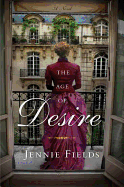Justice Department to Book Industry: 'Drop Dead'
 In a 66-page response to the 868 comments it received about the agency model e-book pricing case, the Department of Justice brushed aside the approximately 800 letters and briefs objecting to the suit and proposed settlement for Hachette, HarperCollins and Simon & Schuster. The Department stuck to its view that what matters most is that consumers be able to buy e-books at the lowest prices possible in free market competition and that Apple and five publishers colluded illegally in instituting the agency model. It dismissed concerns about the effects of possible Amazon market domination and the effect of the Department's case on the book world and literary culture. The Department defended all of its proposed remedies, right down to its requirements of "logs of communications among publishers," federal review of any joint ventures and "antitrust counseling" for publishing executives. In conclusion, the Department said that it will make no changes to the proposed settlement. (Read the entire filing here.)
In a 66-page response to the 868 comments it received about the agency model e-book pricing case, the Department of Justice brushed aside the approximately 800 letters and briefs objecting to the suit and proposed settlement for Hachette, HarperCollins and Simon & Schuster. The Department stuck to its view that what matters most is that consumers be able to buy e-books at the lowest prices possible in free market competition and that Apple and five publishers colluded illegally in instituting the agency model. It dismissed concerns about the effects of possible Amazon market domination and the effect of the Department's case on the book world and literary culture. The Department defended all of its proposed remedies, right down to its requirements of "logs of communications among publishers," federal review of any joint ventures and "antitrust counseling" for publishing executives. In conclusion, the Department said that it will make no changes to the proposed settlement. (Read the entire filing here.)
The Department characterized most of the nearly 800 negative comments, mostly from publishers, authors, agents, and booksellers, as self-interested, saying, for example, "they prefer that unfettered competition be replaced by industry collusion that places the welfare of certain firms over that of the public."
Furthermore, the Department said much of the criticism was misdirected and "expressed a general frustration... from the evolving nature of the publishing industry--in which the growing popularity of e-books is placing pressure on the prevailing model that is built on physical supply chains and brick-and-mortar stores."
By contrast, in a line that sounds as though it came from a PR department rather than the Justice Department, the Department characterized the 70 or so positive comments this way: "Those in support largely commented favorably on the government's efforts to end the conspiracy that cost e-book purchasers millions of dollars and restore competition to the e-book market."
The Justice Department also implied that its suit has already resulted in positive changes in the industry, saying that since the proposed settlement was announced, "more companies are investing to enter or expand in the market and compete against Amazon, Apple, and other e-book retailers." It cited Microsoft's investment in Barnes & Noble and tablet computers that will be launched by Microsoft and Google.
The department also dismissed booksellers' and authors' arguments that the limits on discounting helped brick-and mortar booksellers enter the e-book business and led to many e-book innovations. "To the contrary," the Department said, "brick-and-mortar stores, including B&N, were selling e-books before implementation of the Apple Agency Agreements. Any expansion of brick-and-mortar sales after the Apple Agency Agreements were implemented was limited in its impact because new sellers could not compete by offering discounts. Likewise, online distributors such as B&N and Google had entered or planned to enter the e-book market before the Apple Agency Agreements were signed. Additionally, innovations such as the iPad and B&N's Nook were either introduced or already planned prior to formation of the Apple Agency Agreements. In the pre-conspiracy competitive market, innovation, discounting, and marketing were robust. In contrast, the conspiracy eliminated any number of potential procompetitive innovations, such as 'all-you-can-read' subscription services, book club pricing specials, and rewards programs.' "
The Justice Department characterized fears that "Amazon will come to exclude competition in e-books and monopolize the industry" as "highly speculative at best." The Department reasoned that B&N had already taken e-book market share from Amazon before the agency model was introduced and again noted the involvement of giants Apple, Microsoft, Google and Sony in the e-book world. "The future is unclear and the path for many industry members may be fraught with uncertainty and risk," the Department wrote. "But certainly there is no shortage of competitive assets and capabilities being brought to bear in the e-books industry. A purpose of the proposed Final Judgment is to prevent entrenched industry members from arresting via collusion the potentially huge benefits of intense competition in an evolving market."
The Department also said that during its investigations, it "examined complaints about Amazon's alleged predatory practices and found persuasive evidence lacking," saying that based on a review of data from Amazon, it found "from the time of its launch, Amazon's e-book distribution business has been consistently profitable, even when substantially discounting some newly released and bestselling titles.'"
In some detail, the Department described the comments it received. Among highlights:
- Only one consumer organization, the Consumer Federation of America, commented--and it was so favorable that the Department quoted its studies at length and even reproduced one of its graphs concerning e-book price trends.
- 52 "readers and consumers" wrote favorable comments, some of which "echoed the themes of a form letter suggested by online publisher Wordpress.com."
- A group of 186 authors "noted the growth of the e-book industry and the opportunities it gave them to bypass traditional distribution channels and successfully self-publish e-books at lower prices."
- The Department said several favorable comments expressed the view that the final judgment was not harsh enough.
- While many Authors Guild members wrote to criticize the settlement, several members and consumers knocked the idea that major publishers are a bastion of high-quality literature and writing. The Department noted: "One reader observed anecdotally that Publisher Defendants recently granted an advance to reality television personality 'Snooki' for a ghost-written book, implying the move was in response to commercial potential rather than literary quality."
Concerning the many negative comments, the Department addressed filings from the American Booksellers Association (and some 200 booksellers), the Authors Guild, nine mid-sized independent publishers, Barnes & Noble, the National Association of College Stores and Apple itself. It also responded specifically to comments from literary agent Brian DeFiore; Royalty Share CEO Bob Kohn; Steerads, a Canadian digital advertising company; and the American Specialty Toy Association. --John Mutter










 Last December, Barnes & Noble awarded CEO William Lynch one million stock options (valued at $10.6 million) for the role he played in developing its digital strategy. Now B&N has discovered the grant "
Last December, Barnes & Noble awarded CEO William Lynch one million stock options (valued at $10.6 million) for the role he played in developing its digital strategy. Now B&N has discovered the grant "
 "It may go against common sense, but the loss of hundreds of physical bookstores and several million square feet of book retailing space in 2011 [because of the Borders collapse] actually negatively affected the expansion of e-book usage," said Michael Norris, senior analyst of Simba's trade books group. "The publishing industry can either continue to watch its business get smaller through this unsustainable pattern or find ways to allow in-person discovery of content work in favor of the physical stores that are paying for that discovery to be available.
"It may go against common sense, but the loss of hundreds of physical bookstores and several million square feet of book retailing space in 2011 [because of the Borders collapse] actually negatively affected the expansion of e-book usage," said Michael Norris, senior analyst of Simba's trade books group. "The publishing industry can either continue to watch its business get smaller through this unsustainable pattern or find ways to allow in-person discovery of content work in favor of the physical stores that are paying for that discovery to be available.
 Buyers of travel guidebooks in the U.S. and U.K. still prefer print over digital editions, according to new research from
Buyers of travel guidebooks in the U.S. and U.K. still prefer print over digital editions, according to new research from  Karma
Karma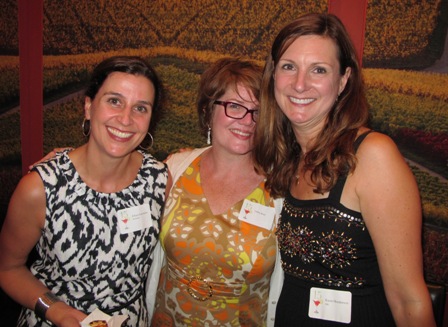
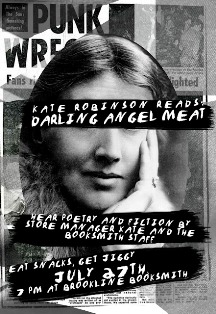 This coming Friday, July 27, Brookline Booksmith will hold an event featuring assistant manager Kate Robinson reading from her new book of poems, Darling Angel Meat (Shoe Music Press). In addition, other staff members will read from "works in print and in progress." One note: "Dancing not guaranteed."
This coming Friday, July 27, Brookline Booksmith will hold an event featuring assistant manager Kate Robinson reading from her new book of poems, Darling Angel Meat (Shoe Music Press). In addition, other staff members will read from "works in print and in progress." One note: "Dancing not guaranteed."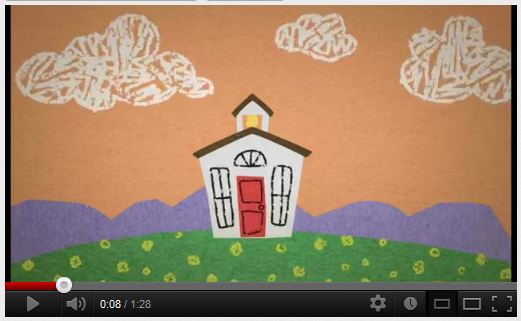 Preschool Gems: Love, Death, Magic, and Other Surprising Treasures from the Mouths of Babes
Preschool Gems: Love, Death, Magic, and Other Surprising Treasures from the Mouths of Babes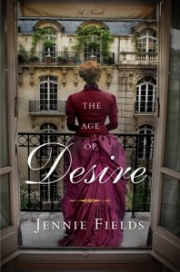 Jennie Fields (Crossing Brooklyn Ferry) has concocted an irresistible tale that transforms the upright, starched and intellectual Edith Wharton we think we know into a supine, disheveled and reveling erotic protagonist. Fields's access to Edith's journals and letters give The Age of Desire an authentic air; we see the creator of Lily Bart and Undine Spragg in a whole new way.
Jennie Fields (Crossing Brooklyn Ferry) has concocted an irresistible tale that transforms the upright, starched and intellectual Edith Wharton we think we know into a supine, disheveled and reveling erotic protagonist. Fields's access to Edith's journals and letters give The Age of Desire an authentic air; we see the creator of Lily Bart and Undine Spragg in a whole new way.